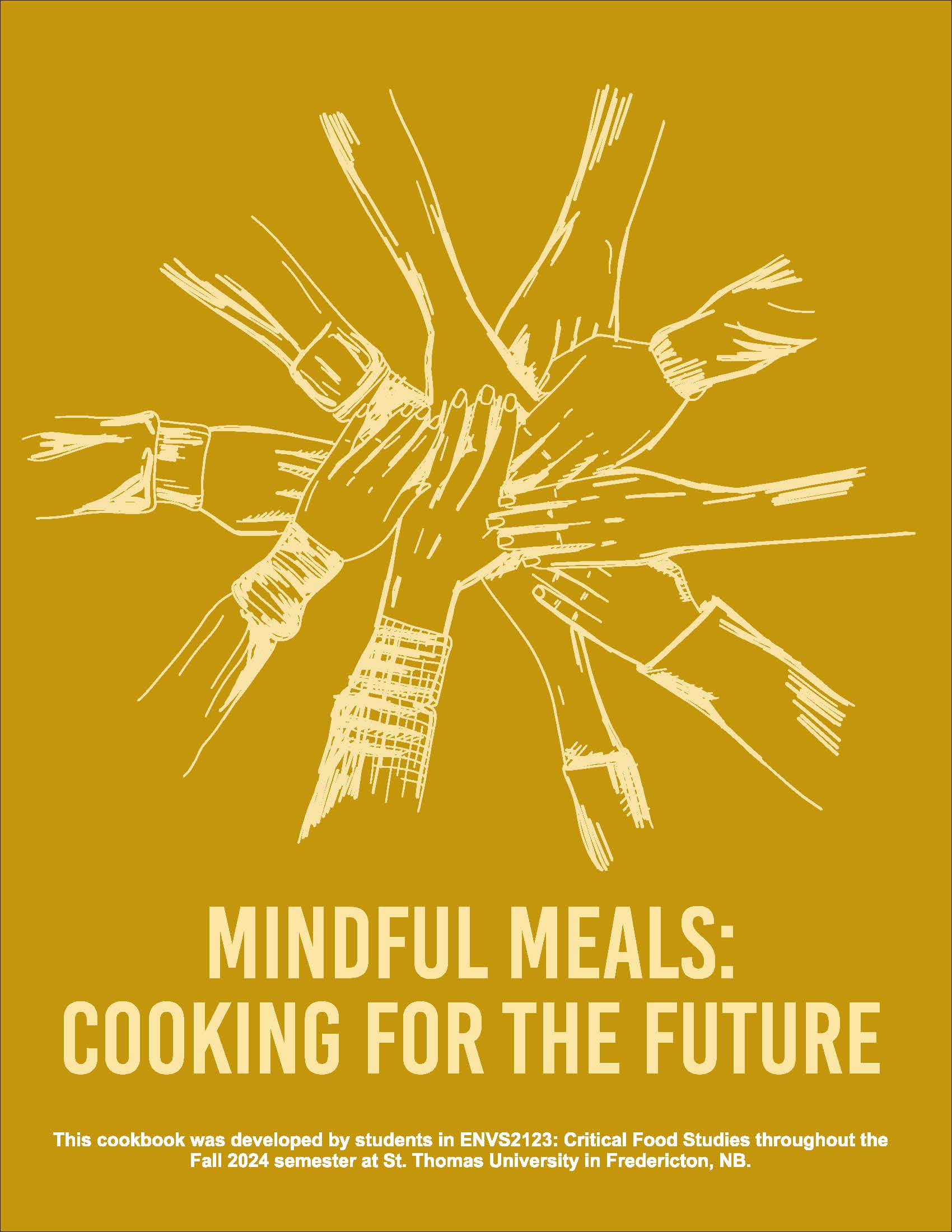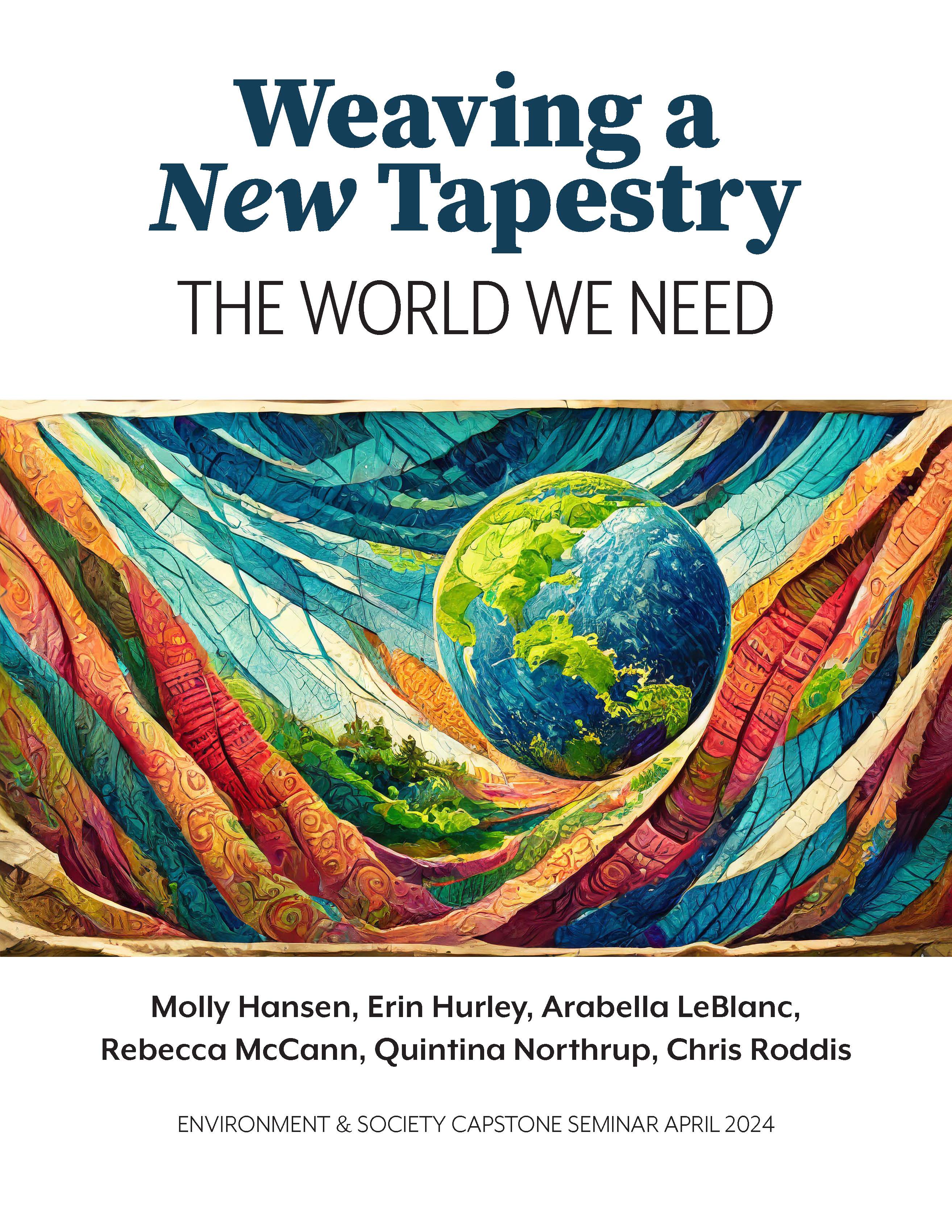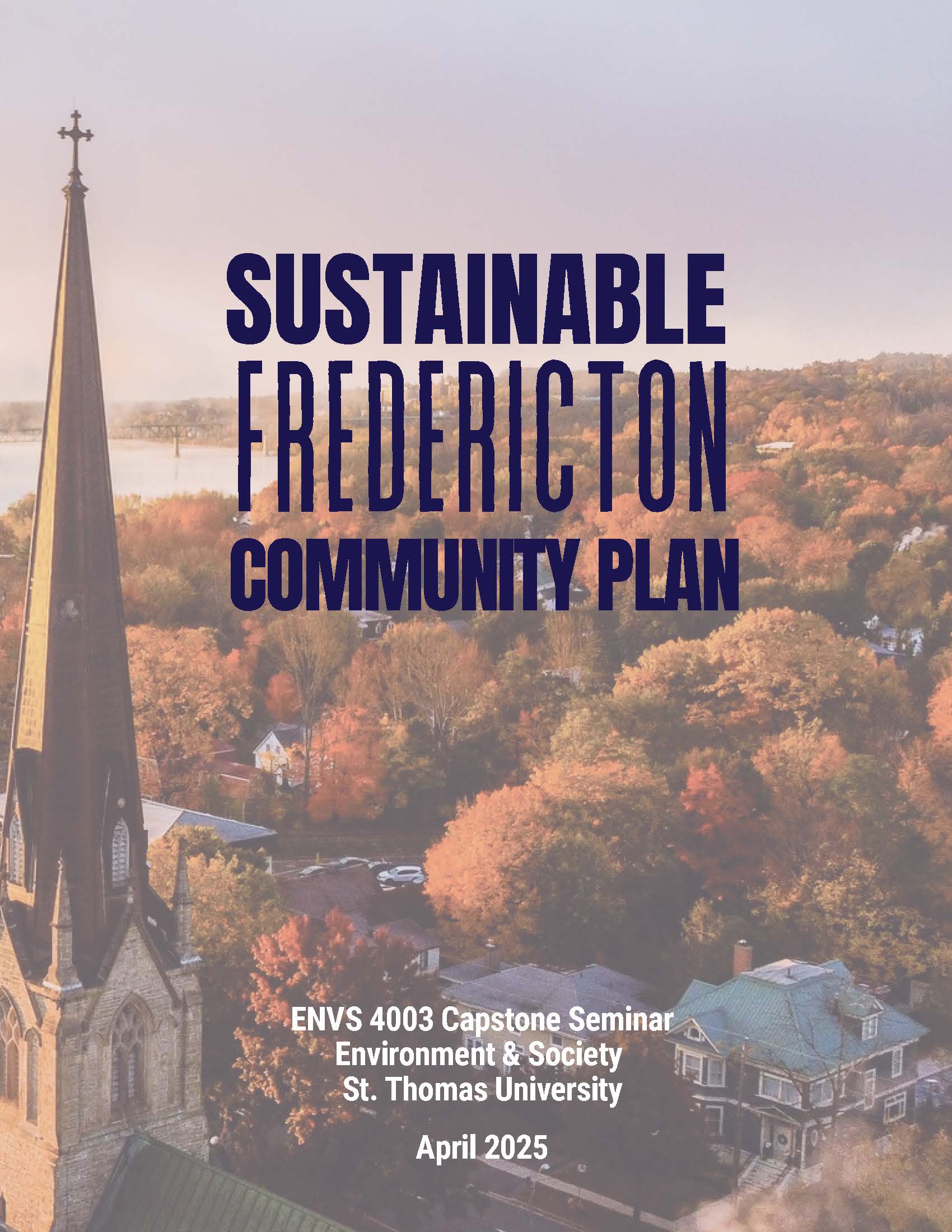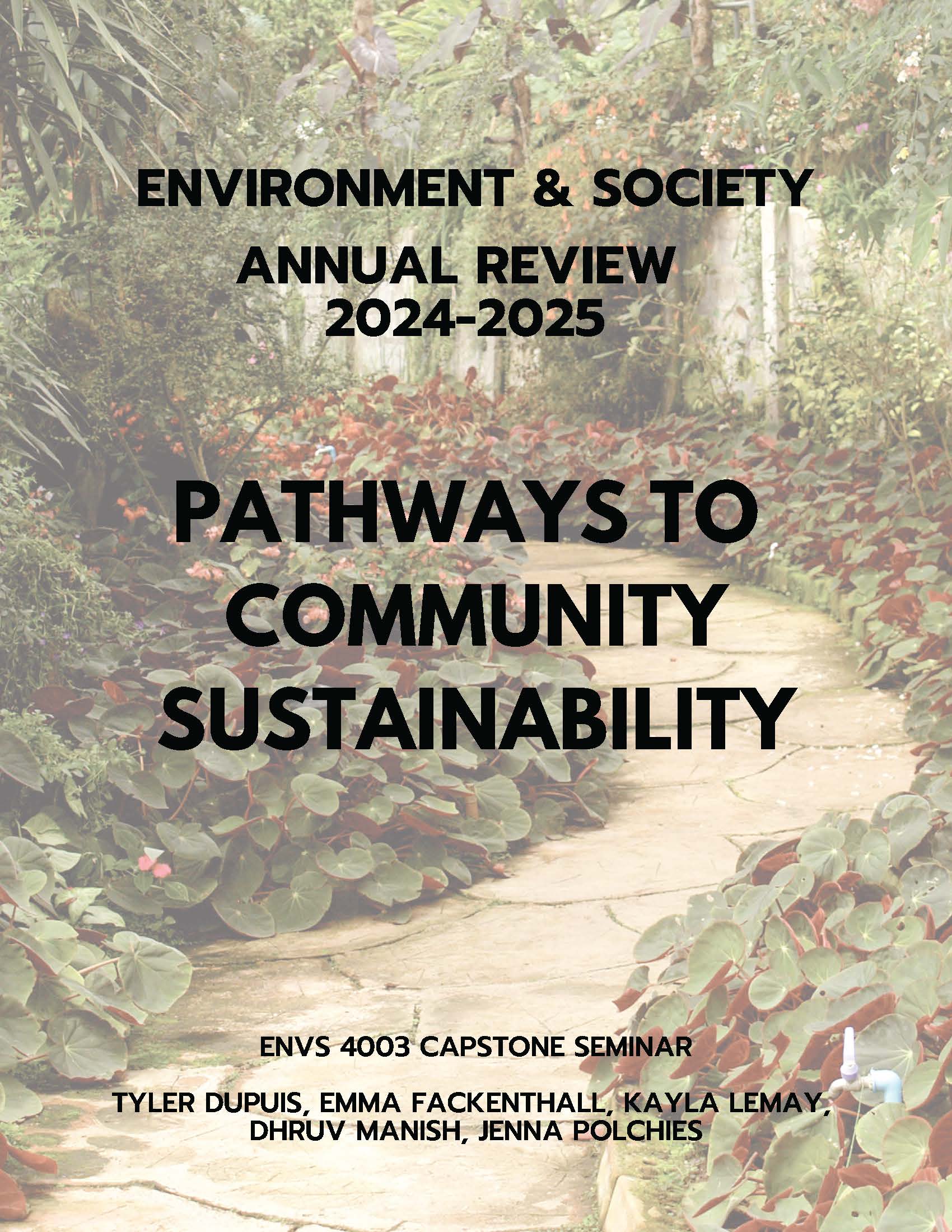Student Projects and Activities
The projects completed in various Sustainability and Environmental Studies courses showcase the creativity and innovation of our students, highlighting their critical thinking, research and writing skills, and practical application of classroom knowledge.
SEST Cookbook
 The Food and Society course explores how food systems intersect with broader socio-political, economic, and ecological issues, examining everything from industrial agriculture and food waste to Indigenous food sovereignty and food justice movements.
The Food and Society course explores how food systems intersect with broader socio-political, economic, and ecological issues, examining everything from industrial agriculture and food waste to Indigenous food sovereignty and food justice movements.
In the Fall 2024 semester, students developed a cookbook. This assignment served as the course's central creative and analytical project, designed to bridge personal food experiences with critical academic inquiry. In this assignment, students moved from proposing a dish important to them to developing a recipe with a scholarly narrative that explores issues related to the recipes. Students collaborated on the title of the cookbook as well as the sections of the cookbook. The sections of the cookbook reflect topics discussed in class.
Mindful Meals: Cooking for the Future
By connecting personal food memories and personally relevant dishes to broader themes like colonialism, identity, climate change, and farmer livelihoods, the cookbook transformed abstract course concepts into tangible, lived experiences. This approach aligns with the course's emphasis on understanding how individual food choices are embedded within global systems. It also focuses on collective action and food sovereignty movements, ultimately creating a class resource that integrates personal narrative and critical food studies.
Food Forest
The Building Regenerative Food Systems course introduces students to permaculture through the experiential design and practice of regenerative land management, with a focus on food forests. Food forests are interdependent groupings of perennial plants in multiple vertical layers that are intended to create a healthy ecosystem from which humans can harvest food, medicine, and other yields. Throughout this course, students discuss ethics and principles for holistic living, discover our local diverse palate of perennial plants and their uses, and practice tools and techniques for creating abundant and welcoming natural spaces.
The major project for this course is applying these skills to design and create a community food forest. This involves interviewing stakeholders, creating a shared vision, assessing and analysing the site, designing the plant groupings and layout, and planning for planting and ongoing maintenance. Students learn tools such as Needs and Yields analysis, Zone and Sector analysis, Yeoman's Scale of Permanence and the use of patterns which can be applied to build any of the regenerative food systems of the future.
Final Report 2025 – Emily Campbell & Mya Roach
Final Report 2025 – Tyler Dupuis & Ivory Gadsden
Final Report 2025 – Hannah Storey & Kayla Lemay
Capstone Seminar
In their final year, Sustainability and Environmental Studies majors take a Capstone Seminar. In this course, they focus on a specific theme and project that draws on their learning across their entire program.
 Weaving a New Tapestry: The World We Need
Weaving a New Tapestry: The World We Need
The 2023-25 class produced a report, Weaving a New Tapestry: The World We Need, in which each student wrote a chapter, drawing on their own interest and research. The goal was to highlight how aspects of our society could be reimagined to contribute to a sustainable world.
 Sustainable Fredericton Community Plan
Sustainable Fredericton Community Plan
The 2024-25 class took up the theme of sustainable communities. Their project was to write an alternative municipal plan for the City of Fredericton. Each student researched and wrote a section, highlighting land use, transportation, green spaces and infrastructure.
The 2024-25 class also wrote the inaugural edition of an Annual Review for Sustainability and Environmental Studies. Each student contributed two articles, drawing on their learning in the course. The Annual Review will be a project of each subsequent Capstone Seminar.
